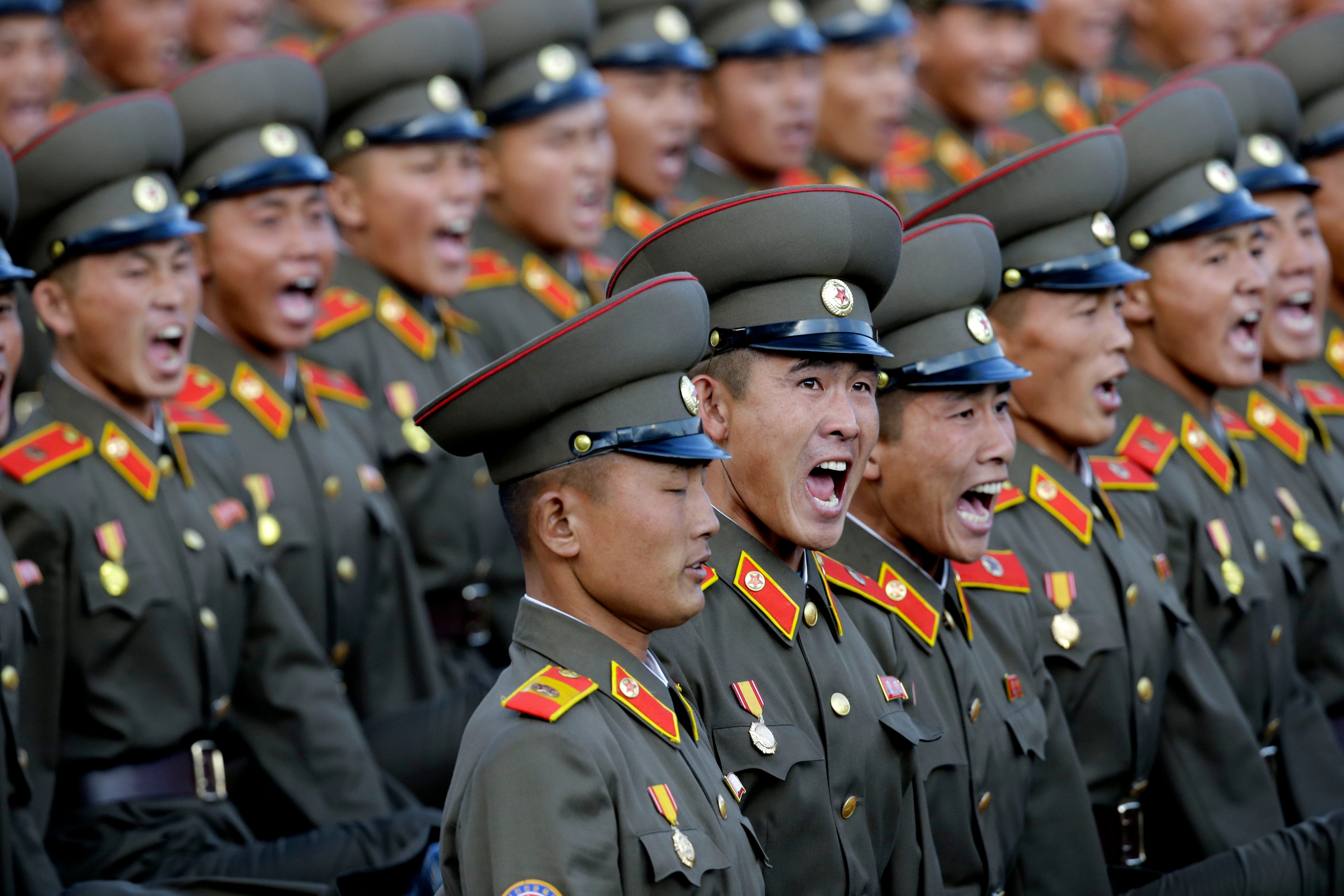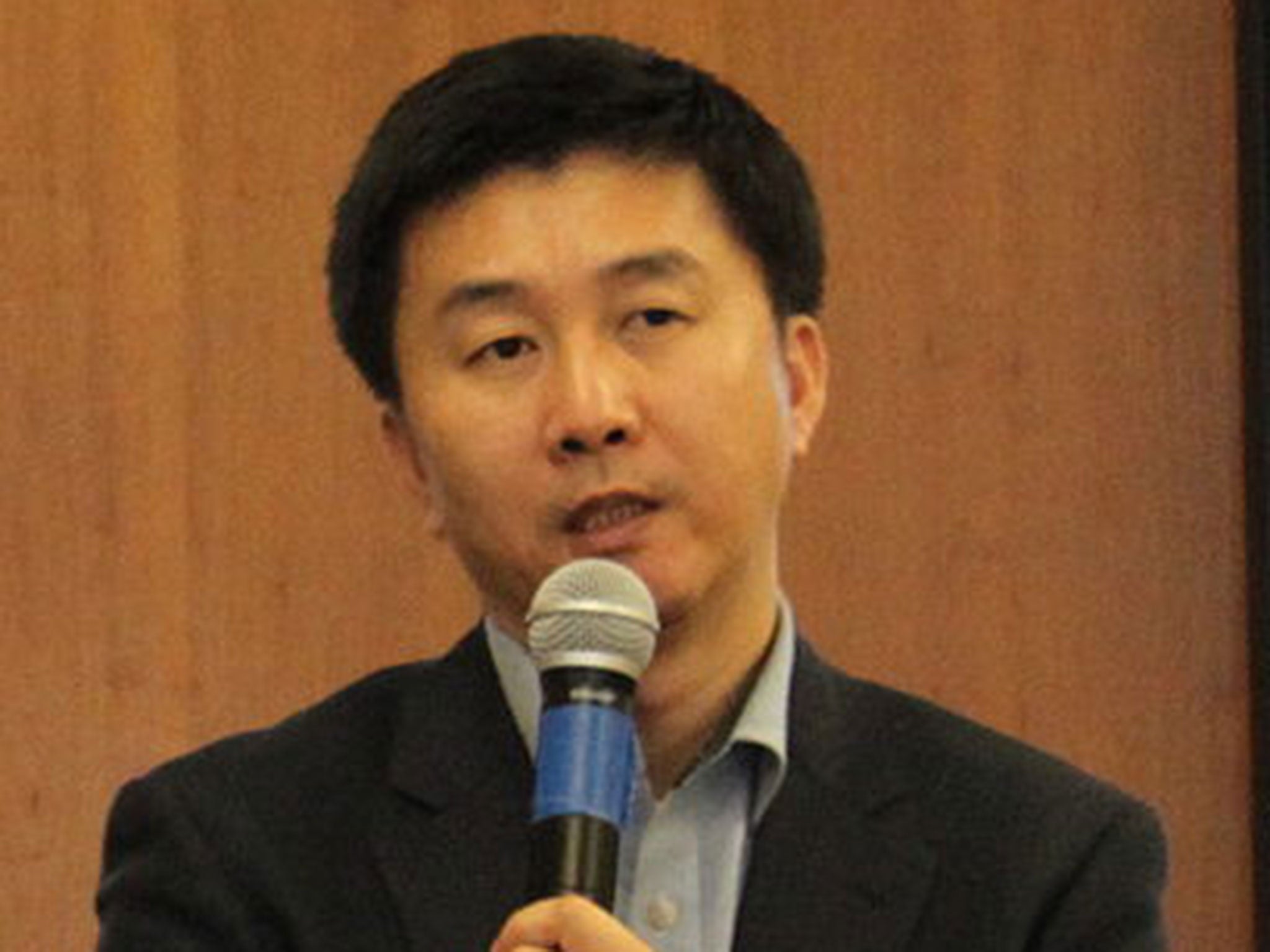North Korean defector describes life in 'Auschwitz-like' prison camp
Kang Chol-hwa says he was hit and tortured - and forced to watch public executions

Your support helps us to tell the story
From reproductive rights to climate change to Big Tech, The Independent is on the ground when the story is developing. Whether it's investigating the financials of Elon Musk's pro-Trump PAC or producing our latest documentary, 'The A Word', which shines a light on the American women fighting for reproductive rights, we know how important it is to parse out the facts from the messaging.
At such a critical moment in US history, we need reporters on the ground. Your donation allows us to keep sending journalists to speak to both sides of the story.
The Independent is trusted by Americans across the entire political spectrum. And unlike many other quality news outlets, we choose not to lock Americans out of our reporting and analysis with paywalls. We believe quality journalism should be available to everyone, paid for by those who can afford it.
Your support makes all the difference.A former inmate has spoken out about his time in an “Auschwitz”-like prison camp in North Korea, and his escape from the country.
Kang Chol-hwan, whose grandfather was accused of being a traitor, was imprisoned aged nine in Yodok concentration camp, staying there for ten years.
The government of North Korea runs one of the world’s most reclusive and repressive regimes, severely restricting information and freedom of movement and expression.
There are also an estimated 80,000 to 120,000 political prisoners locked in concentration camps in the country.
The camps have faced frequent allegations of torture, forced abortions, starvation, arbitrary executions and other "unspeakable atrocities".

After his release, he escaped from North Korea and began a new life in South Korea.
He now campaigns for a human rights group in North Korea, and his group, North Korea Strategy Center, smuggles USB sticks into the North to inform its people about the outside world.
Mr Kang used the forum Reddit to answer questions about his life in the camp.
“Daily life in the work camps is very mundane,” he said.
“We woke up at 5am and were forced to work until sunset. We were given lessons on Kim il-sung [first supreme leader of North Korea] and Juche [North Korean political doctrine].
"We were forced to watch public executions. We were physically abused - hit and tortured.
"I think of it as another form of Auschwitz.
"These work camps are like products of Nazism, and an abusive government needs elements such as Nazi concentration camps. They just have different ways of killing people."
Mr Kang also highlighted how restricted all aspects of life were in North Korea, even outside of the camps.
"In North Korea, it’s not really possible for common people to enjoy hobbies," he said.
“Because people’s lives are governed within the authority’s rules and communal lifestyle, having personal hobbies or showing personal preference is a shortcut to the prison camp.”
After escaping from North Korea in 1992, he was shocked by social differences between the North and South.
“Women’s rights in the two countries are so different. In North Korea, women are often treated harshly, but in South Korea, I saw women smoking, which is unimaginable in the North.
“Actually everything was a shock. The fact that I could travel whenever I wanted was shocking.
“In North Korea, you need a travel pass to go anywhere but in South Korea, the freedom of movement is taken for granted.”
Mr Kang also asserted that the international community has been misguided in its economic attempts to put pressure on the North Korean regime.
“Real pressure on the North Korean government would be to open up the physical border and induce mass defection, or to open up the information barrier and to provide access to outside information,” he said.
“The government wants to prevent defection. They fear that if many people start to defect, unification similar to the German case will take place. So, they are focused on keeping the border shut.
“Second, the government wants to prevent North Koreans from having access to outside information. The more North Korean citizens know, the more dangerous it is for the government. So far, I do not believe we have been targeting either of these.”
Mr Kang has been trying to fight the government using the second method.
USB stick drives, loaded with information about the world outside North Korea, are smuggled into the country by the thousands - but not without risk.
“North Korean citizens often get caught using these USB sticks but they are released when they give bribes to the police.
“I believe it would be about 500 dollars maximum in Pyongyang and about 200 to 300 dollars in other regions.
“The problem would be if they are caught and they have no money to bribe their way out."
The North Korea Strategy Center is currently running a crowd-funding campaign to smuggle more USB sticks into North Korea.
Join our commenting forum
Join thought-provoking conversations, follow other Independent readers and see their replies
Comments